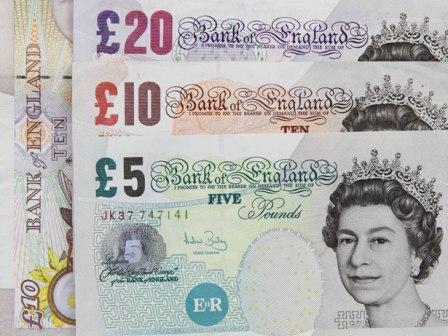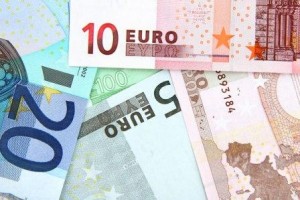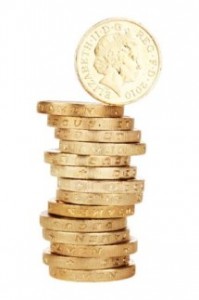
The UK money & currency travellers tips guide outlines travellers tips and advice on money and currency in the UK. The guide introduces the UK currency and offers helpful tips on the rules on how much money travellers can bring in to the UK and practical advice on currency rates, currency conversion and more information on UK banks, their opening ours and how to access money around the UK.
Travellers Tips - UK Money & Currency
UK Money & Currency
Bringing Money In To The UK
Currency Exchange
UK Banks & ATMs
UK Tipping & Service Charge
UK Money & Currency
The currency in the UK is the British Pound (Sterling), GBP. The currency symbol used is £
The British Pound is a an internationally traded currency, travellers can exchange their own national currency for British Pounds in their countries before they travel to the UK or can exchange their foreign exchange when they arrive in the UK.
The cash monetary system consists of notes and coins. There are 100 pence in every £1.
Notes are available in the following denominations (£ = British Pounds):
£5, £10, £20, £50
Coins are available in the following denominations (p = pence & £= British Pounds):
1p, 5p, 10p, 20p, 50p, £1, £2
The UK has not yet adopted the Euro as is the case with much of mainland Europe. The Euro is accepted by some shops and outlets, but these are currently few in number and it is advisable for travellers to ensure they have British Pounds to pay for goods & services.
Bringing Money In To The UK
For travellers bringing in money in to the UK, it is useful to ensure you bring a range of denominations when exchanging your currency. A mixture of notes and coins ensure you have change for tips for porters, taxis etc. when you arrive. It is also useful if you are paying for anything that takes coins (some ticket machines) or does not give change back from notes.
For citizens of a European Union (EU) Country, they are currently allowed to bring in and take out notes, travellers' cheques, bankers' drafts etc up to any limit in any currency.
For those travelling in to the UK from outside the EU, you need to declare cash amounts of Euro 10,000 & over (or the equivalent amounts in other currencies) at customs and complete a cash declaration form. For those travelling out of the UK to a Non EU country with cash (i.e. notes, travellers' cheques, bankers' drafts etc) over Euro 10,000 also need to declare this at customs. For more information and to check the latest rules & regulations please see: Declaring Cash Revenue & Customs
Currency Exchange
You can exchange foreign currency at banks, Bureau de Change kiosks, post offices and some hotels. These are located in airports and in the majority of town & city centres in the UK.
UK Banks & ATMs
Banks in the UK have an extensive presence, they can be found in most tourist areas, high streets, retail & shopping outlets. The usual opening hours for banks in the UK are:
From 09.00/09.30 to 16.30 Monday to Friday.
It should be noted the opening hours can vary considerably depending on the location of the branch. Banks are closed on public and bank holidays. When the banks are closed, many banking services are still available via ATMs, telephone and Internet banking.
For visitors to the UK, it is recommended you check with your local bank whether you will have banking services access in the UK & if there are any arrangements/partnerships they may have with UK banks to use their services whilst you are in the UK.
ATMs also known as cash point machines are located in many locations on high streets, shopping & retail centres, motorway services & tourist areas all over the UK. They provide a quick and convenient way to access money especially when banks are closed. Travellers can use international credit cards, bank cards and debit cards at the ATMs.
Safety Tips for when using ATMs:
Try to use an ATM located inside a bank branch rather than one on the street.
If you feel uncomfortable, see a suspicious person loitering around or your instincts tell you something is wrong, do not use the ATM, go to another area.
Be aware of those standing behind you & check they are not standing too close.
Be aware of your belongings, i.e. bag, luggage & do not leave it unattended when using the ATM.
If you have a handbag/shoulder bag with a strap; do not leave it on your shoulder when using the ATM, carry the bag across your body to ensure it is much more difficult for opportunist thieves to grab your bag off your shoulder.
Be alert when using the ATM, avoid using things that can distract you i.e. talking or texting on a mobile phone.
When using the machine ensure you cover your hand when typing in your pin so nobody else standing near you can see it.
When you have taken your money out, remember to safely put away your money out of public view ASAP, take your card back & any receipt you requested. Do not leave any personal information at the ATM.
If you suspect anything is wrong with the ATM machine or card or have other concerns contact your bank ASAP.
There are other ways of obtaining money when banks are closed, these include at some department stores with exchange services, travel agents on the high street, hotels and the Bureau de change that are located in many places.
Credit Cards
Credit cards are widely accepted across the UK, Visa, MasterCard and Amex are accepted in many places. The logos of Visa, MasterCard & Amex are usually displayed at the pay points at retail outlets, if you are unsure or cannot see the appropriate logo for your card, check with the retailer first.
Tips when using Credit Cards:
Check there is no extra charge to pay by credit card.
Do not let the card out of your sight, if you are in a restaurant request the waiter brings you the machine to pay at your table or go with your card yourself to the pay point.
When paying using chip & pin ensure there is no one standing too close to you.
Cover your hand when typing in your pin number so those around you cannot see it.
Make sure you take the card back/are given the card back when you have paid & put the card safely away.
Keep all of your receipts.
Check your statement and ensure there are no items on it you did not purchase.
If you suspect any fraud or your card is lost or stolen, contact your credit company as soon as you can and have it cancelled immediately.
UK Tipping & Service Charge
The customary amounts people tip for good service is usually around 10% to a maximum of 15%. Service charges may be included in your bills in places such as hotels and restaurants, check first if the service charge is included. If the service charge is included there is no need to give a tip.
If service charges are not included in hotels and restaurants & if you are happy with the service you received the average amount to tip is usually 10% to a maximum of 15%. The same percentages apply to taxis.
The tips, advice and practical information contained within the UK money & currency travellers tips give provides travellers with a good overview on the UK money & currency systems and things to look out for. Travellers should always take care when they are paying for any goods & services, being aware of the currency, prices, payment methods and following safety tips can help reduce the chances of falling victims to fraud or theft.
Disclaimer: The information given in on this website is given in good faith and to the best of our knowledge. If there are any discrepancies in no way do we intend to mislead. Important travel details and arrangements should be confirmed and verified with the relevant authorities.




